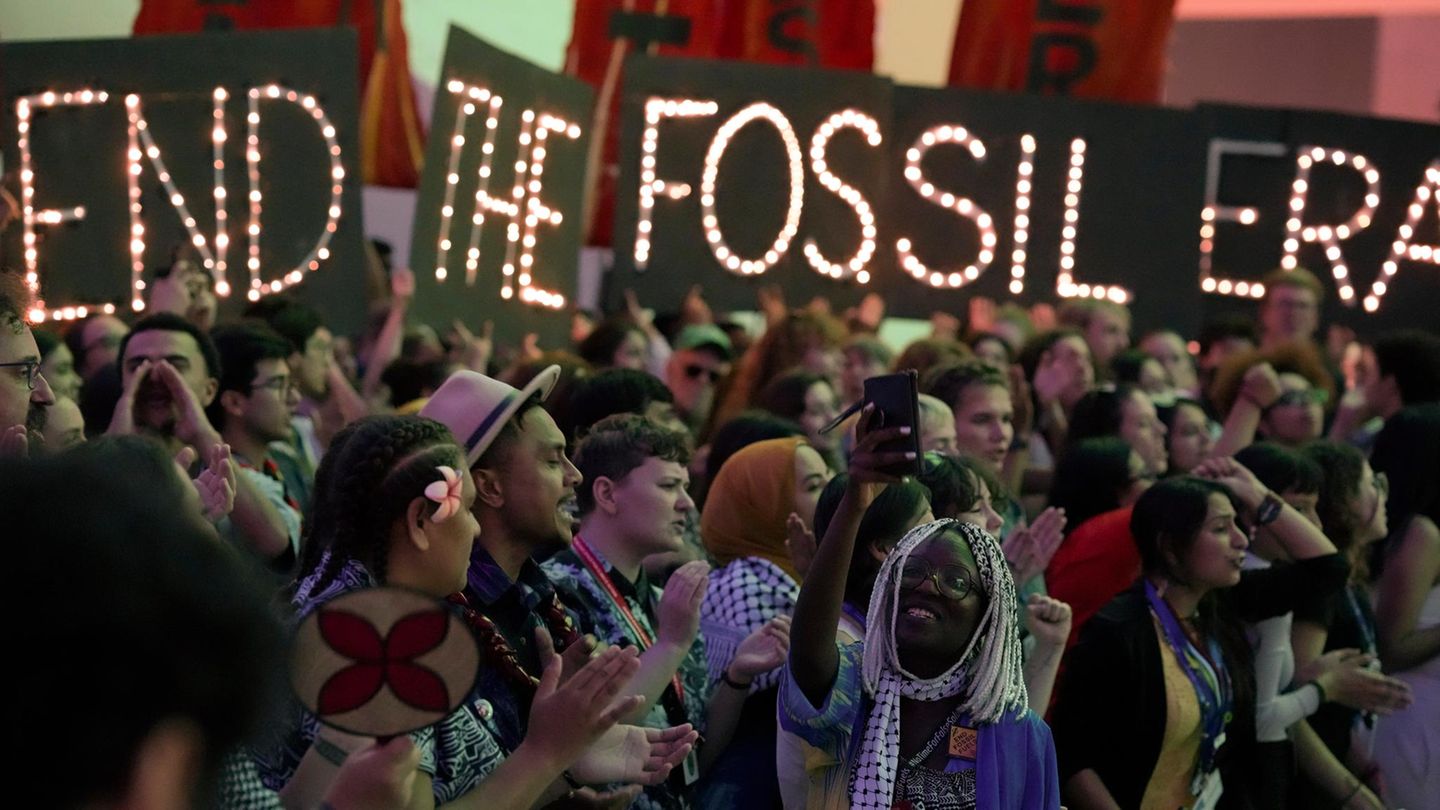Because the participants could not agree, the climate conference had to be extended. How and whether the global community will phase out fossil fuels has been a much-discussed sticking point. Now there is a compromise.
At the World Climate Conference in Dubai (COP28) there is now a compromise that calls for a “transition” away from fossil fuels. COP President Sultan Ahmed al-Jaber announced the decision in the conference plenary on Wednesday after none of the nearly 200 countries raised objections. “We have the basis for transformative change,” al-Jaber said to applause from delegates. However, countries like Germany did not push through with their demand to agree a global phase-out of coal, oil and gas.
The compromise decision calls for a “transition away from fossil fuels in energy systems in a just, orderly and fair manner”. With the compromise decision, the negotiators had shown “flexibility” and put “common interests ahead of their own interests,” said al-Jaber. “We should be proud of our historic achievement and the United Arab Emirates, my country, is rightly proud of its contribution to taking this forward.” Oil states such as Saudi Arabia in particular vehemently resisted a decision to completely abandon oil and gas worldwide.
The UN climate conference in Dubai (COP28) was actually supposed to end on Tuesday. However, the draft resolution presented by the Emirati COP presidency on Monday was rejected by a large majority, including the EU states, the USA, Brazil and the small island states. According to their information, a total of around 130 states opposed the vague resolution. The plenum took place one day late. After a second night of negotiations, the COP President presented the revised central decision text on Wednesday morning and called the final meeting.
The previous version only envisaged a “reduction” in the extraction and use of fossils. It went on to say that this should be done in a “fair, orderly” manner in order to achieve greenhouse gas neutrality “by, before or around 2050”.
EU and Germany satisfied with explanation
The text that has now been approved calls for a “transition away from fossil fuels in the energy systems” and is therefore the first resolution of a UN climate conference that affects the future of all fossil energies – in addition to coal, also oil and natural gas. States like the EU were unable to push through their demand to agree on a global move away from all fossil fuels in the face of bitter resistance from oil states like Saudi Arabia.
However, the EU still expressed satisfaction. “For the first time in 30 years, we could now be reaching the beginning of the end for fossil fuels,” said EU Climate Commissioner Wopke Hoekstra on the way to the vote. In a statement following the decision, French Energy Transition Minister Agnès Pannier-Runacher spoke of a “victory of multilateralism and climate diplomacy.”
Climate declaration: more of an appeal than an announcement
The resolution calls for a tripling of global renewable energy capacity by 2030 and a doubling of energy efficiency over the same period. But it also contains references to “transitional energies” such as natural gas and the controversial technologies for capturing and storing CO2.
UN Climate Secretary Simon Stiell called on the global community to bring the Dubai decision to life. “Now all governments and companies must translate these commitments into real economic practice without delay,” he told the plenary session.
Environmental and development organizations classify the new draft resolution as a significant improvement compared to the previous vague draft and as an “important signal”, but criticized it as insufficient.
This post has been updated several times since publication.
Source: Stern
I have been working in the news industry for over 6 years, first as a reporter and now as an editor. I have covered politics extensively, and my work has appeared in major newspapers and online news outlets around the world. In addition to my writing, I also contribute regularly to 24 Hours World.




